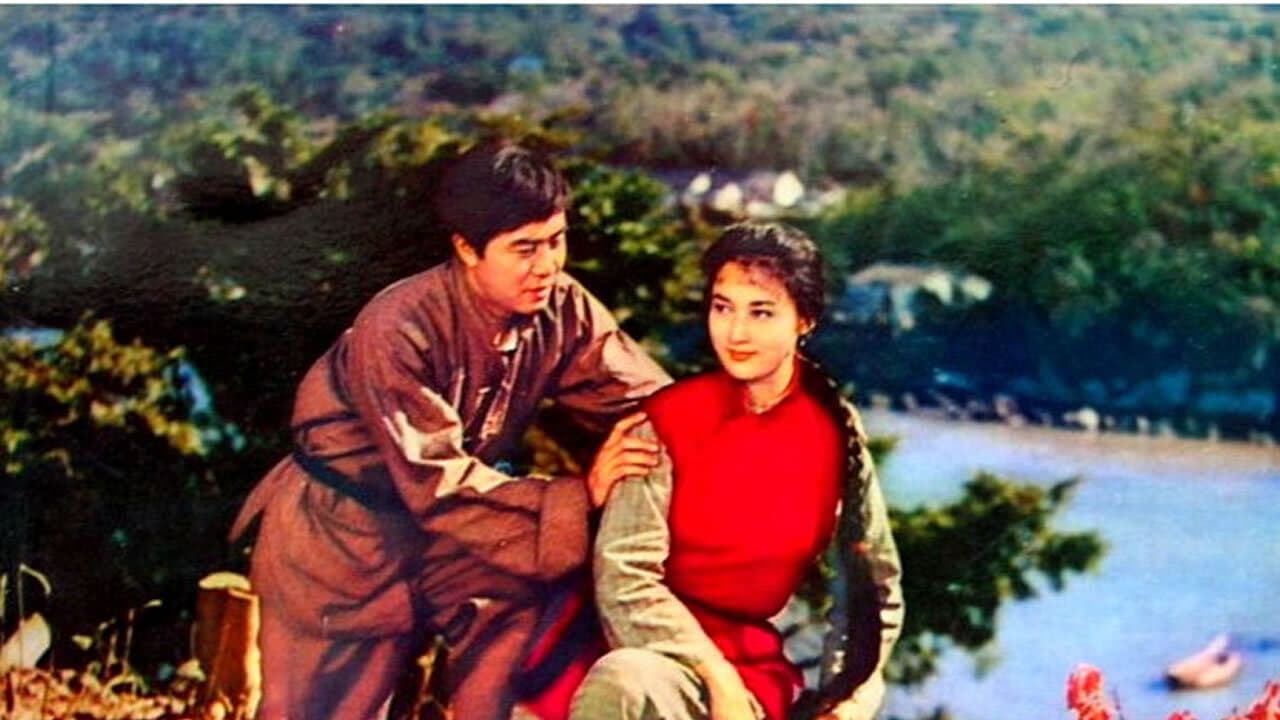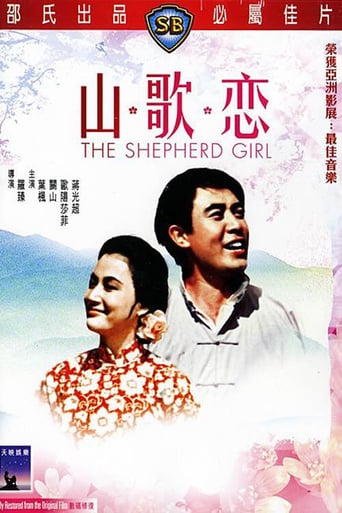



The greatest movie ever!
A Brilliant Conflict
True to its essence, the characters remain on the same line and manage to entertain the viewer, each highlighting their own distinctive qualities or touches.
View MoreIt is interesting even when nothing much happens, which is for most of its 3-hour running time. Read full review
View MoreTHE SHEPHERD GIRL (1964) is an operetta about a young boatman, Dalong, and a shepherd girl, Xiuxiu, in which the two lovers sing 99% of their dialogue to each other. The setting is a traditional Chinese seaside village and the film was shot in equal parts on a picturesque Taiwanese coast and in the Shaw Bros. studio. The two leads have their first encounter when they sing to each other across the water, she on a high hill tending her goats, he plying his trade in the waters below. She essentially challenges him, in song, to come looking for her. Long story short: they meet in town, hook up at a mating festival where the young men and women of the village pair off after some group singing sessions, and are all but betrothed to each other by the middle of the film. But then fate intervenes in the form of some obstacles—one based on a misunderstanding and one involving a rival who actually puts down money to buy the girl as a bride. Can the lovers recapture the spark that first drew them together and then reunite after a major catastrophe? The misunderstanding involves Dalong and his friendship with an outcast woman of the village who'd been derided as a "whore" in a gossip song by the town boss. The film had been a romantic idyll up to this point, a soaring love fest designed to warm viewers' hearts everywhere. Instead, Xiuxiu's headstrong overreaction to this incident leads to a bout of impulsive behavior that borders on irrational and results in plans for an arranged marriage to Tiger Zeng, a brutish fur trapper from the mountains to whom the town boss has promised Xiuxiu after calling in her father's unpaid gambling debts. A lot happens in the second half and we haven't even gotten to the lone sea voyage and the threat of pirates.The songs are beautifully sung, although I'm not sure if the on-camera performers provide the voices. The scenery is consistently beautiful, whether on location in Taiwan or recreated on the Shaw studio's lavish soundstages. The dance on Phoenix Mountain where the girls and boys sing back-and-forth at night around several bonfires is a joyous and spectacular number, as lovely in its own way as anything comparable you'd see in a Hollywood musical. However, the melodramatic tone of the overlong second half, culminating in a nasty, grueling fight between the boatman and the trapper, diminishes some of the good feeling of the first half and keeps this from being a great Shaw movie. But it's a compelling one nonetheless and makes a lavish showcase for the considerable talents of its star, Julie Yeh Feng, who plays Xiuxiu. She was beautiful, but not in a demure or delicate manner like the more typical Shaw Bros. leading lady of the time (e.g., Betty Loh Ti, to name one). She was aggressive and confident and had a strong, commanding screen presence that lent itself to less glamorous, more down-to-earth parts, such as the outspoken shepherd girl in this film and the student activist/nationalist soldier in Cathay's SUN, MOON AND STAR and SUN, MOON AND STAR PART 2 (both 1961 and both also reviewed on this site).
View More